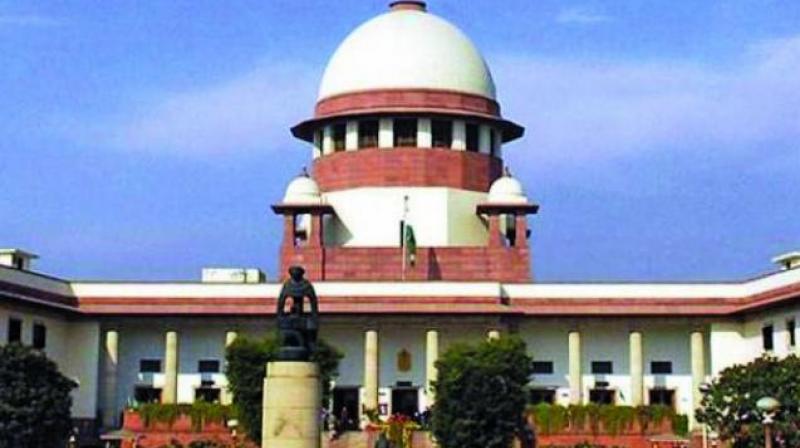Ram Lalla defines ‘Janmasthan’ in Supreme Court

New Delhi: The deity of Ram Lalla on Friday told the Supreme Court that though Ayodhya was the Janmabhoomi of Lord Rama it would be inappropriate to equate the entire Janmabhoomi with Janmasthan which was limited to the inner courtyard and outer courtyard comprising 2.77 acres of the disputed site at the holy city.
Drawing a distinction between the Janmabhoomi and Janmasthan, senior counsel K. Parasaran told the five-judge Constitution bench headed by Chief Justice Ranjan Gogoi that “declaring the whole holy city of Ayodhya as a part of Ram Janmasthan may not be appropriate.”
However, Mr Parasaran also made it clear that limiting the Janmasthan merely to garbagriha (sanctum sanctorum) too may not be correct as it would encompass the outer courtyard and the parikarma.
Buttressing the importance of Janmasthan, Parasaran cited Valmiki where Lord Vishnu is referred to saying that he would incarnate as Lord Rama and take birth at Ayodhya.
Arguing for Ram Lalla, Mr Parasaran told the court that deity being worshipped was accorded juristical personality by judicial pronouncements and referred to several instances whereby court pronouncements on different religious places have been attained juristical personality.
Citing different pronouncements declaring different divine entities juristical person, Mr Parasaran said, “It is going on for a long time. It is not statutory but judicially evolved entity. It is for the court to decide whether to evolve it further or not.”
He referred to the religious places across the country including Govardhan parvat and Kailash as instances of juristical personality.
The constitution bench also comprising Justice S. A. Bobde, Justice D. Y. Chandrachud, Justice Ashok Bhushan and Justice S. Abdul Nazeer was told this in response to a poser from Justice Bobde asking how come deity of Lord Rama came to assume juristical personality.

